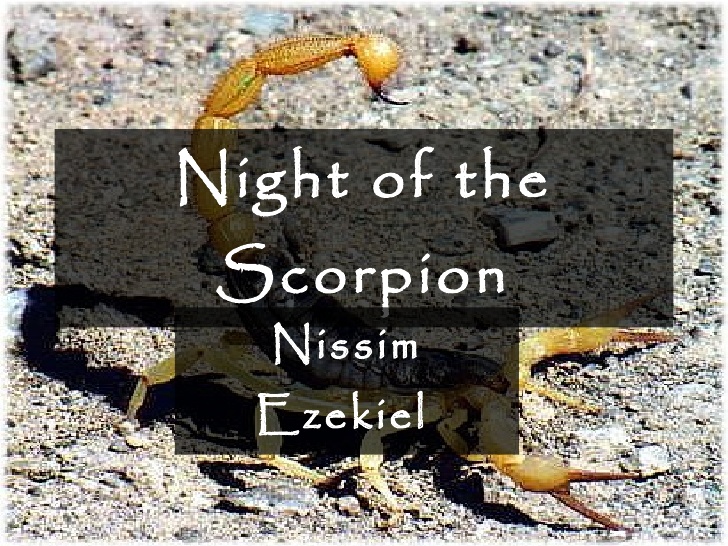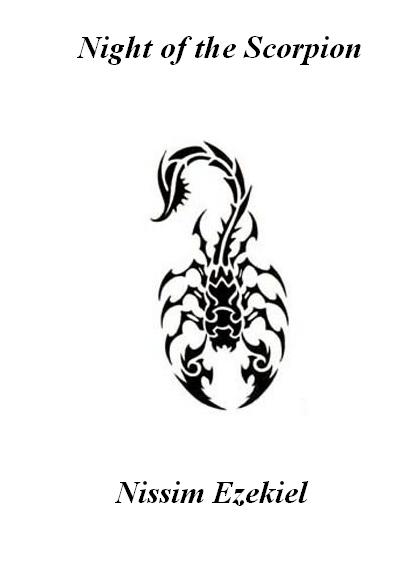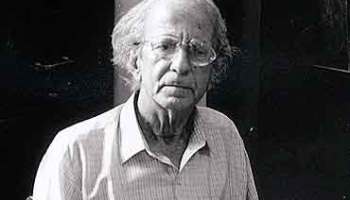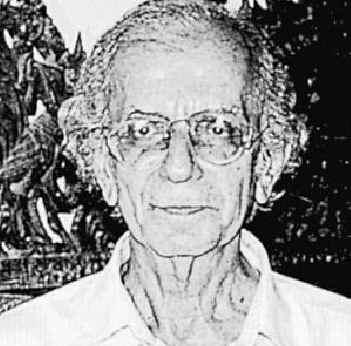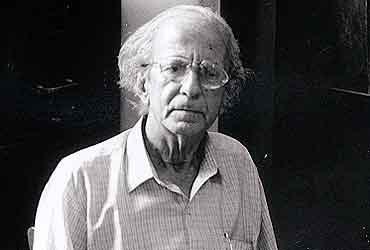About the poet:
Nissim Ezekiel is known as the father of post-independence Indian-English verse. He is the one who started modernity in Indian-English poetry. His simple, conversational style has influenced many later Indian English poets.
Poet, dramatist, editor, as well as art-critic, Nissim Ezekiel was born on 14th December 1924 in Mumbai. The Ezekiels belonged to Mumbai’s Jewish community, commonly known as the ‘Bene Israel.’ In 1947, Ezekiel took his MA in English Literature from Mumbai University. Thereafter he studied philosophy at Birbeck College, London. He married Daisy Jacob in 1952 and the same year his first collection of poems entitled A Time to Change was published by Fortune Press (London). Returning home the next year, Ezekiel joined The Illustrated Weekly of India as an assistant editor and stayed there for two years. Ezekiel’s other poetry collections are The Third (1959), The Unfinished Man (1960), The Exact Name (1965), Snakeskin and Other Poems (1974), Hymns in Darkness (1976), Latter-Day Psalms (1982), and Collected Poems 1952-88 (1989).
The honors that Ezekiel received are: the Sahitya Akademi award in 1983 and the Padma Shri in 1988. After a prolonged battle with Alzheimer’s disease, Nissim Ezekiel died in Mumbai on 9th January 2004.
About Enterprise:
This poem by Nissim Ezekiel was published as part of his collection of poems known as The Unfinished Man, which was published in 1960.
The Setting of Enterprise:
This poem is set en route a pilgrimage undertaken by the poet and some of his fellow men. The journey is full of difficulties and obstacles. The bulk of the poem’s content focuses on this treacherous landscape through which the pilgrims travel.
Summary of Enterprise:
The poem consists of 30 lines in total. These lines are not divided into stanzas. Here they are divided into meaningful segments in order to make the poem easier to follow and understand.
Lines 1 – 5:
It started as a pilgrimage
Exalting minds and making all
The burdens light. The second stage
Explored but did not test the call.
The sun beat down to match our rage.
In these lines, the poet describes the beginning of the pilgrimage undertaken by him and a few others. He says that they had started on the pilgrimage believing it would ennoble their minds and help them live their lives without feeling any of the pressures that all men are subject to at some point in time or the other. In the second stage of their pilgrimage, they questioned whether they had really heard the call from God asking them to make such a journey, but it couldn’t dissuade them from continuing on the pilgrimage. They were still spirited enough to walk ahead. Their fervent passion was only equaled by the heat of the blazing sun in the sky.
Lines 6 – 9:
We stood it very well, I thought,
Observed and put down copious notes
On things the peasants sold and bought
The way of serpents and of goats.
In these lines, the poet says that he and his fellow pilgrims bore the heat of the sun without much difficulty. Then, in the course of passing through the route of the pilgrimage, they watched everything around them very carefully and noted down everything that they thought was important. They wrote about what kind of goods were bought and sold by farmers, and also about the habits and habitat of such creatures as the snake and the goat.
Lines 10 – 15:
Three cities where a sage had taught
But when the differences arose
On how to cross a desert patch,
We lost a friend whose stylish prose
Was quite the best of all our batch.
A shadow falls on us and grows.
In these lines, the poet says that he and his fellow pilgrims passed through three cities where one particular sage had taught some wise lessons. However, very soon, this pleasant part of the journey was at an end. The Pilgrims were confronted by an arid desert, and they could not agree on the best possible way to traverse that landscape. As a result of quarrels on this subject, they lost the most erudite member of their group, whose prose writing was praised by all. After this, all the remaining pilgrims started to feel more and more disappointed.
Lines 16 – 19:
Another phase was reached when we
Were twice attacked, and lost our way.
A section claimed its liberty
To leave the group. I tried to pray.
In these lines, the poet describes the next phase of their pilgrimage. He says that they were faced with attacks twice, and then they got lost. Finally, one part of the group decided to go their own way. By this time, the poet was so much in despair that he had started praying for a way out of this situation.
Lines 20 – 24:
Our leader said he smelt the sea
We noticed nothing as we went,
A straggling crowd of little hope,
Ignoring what the thunder meant,
Deprived of common needs like soap.
In these lines, the poet says that since they were traveling through the desert, they were hoping they would find some water soon, and at that time, their leader thought he could smell the sea. However, the rest of the pilgrims could not depend on his words and walked forward very slowly, sometimes lagging behind. They were so incensed that they did not even see what kind of landscape they were passing or what things were to be found there. They had lost their enthusiasm by then. They heard the sound of thunder but did not try to figure out what its meaning was. They did not even have the basic provisions to refresh themselves, such as soap.
Lines 25 – 30:
Some were broken, some merely bent.
When, finally, we reached the place,
We hardly know why we were there.
The trip had darkened every face,
Our deeds were neither great nor rare.
Home is where we have to gather grace.
In these lines, the poet describes the moment when they finally reached the destination of the pilgrimage. Some of the pilgrims had totally lost their spirit, and others thought they had only temporarily lost it and would regain it soon. However, none of them could understand why they had come to that place. The trip had caused everyone some amount of sorrow. The fact that they had completed the pilgrimage did not make them feel that they had done anything extraordinary or noble. They realized that the pilgrimage was wholly unnecessary because they could have stayed at home itself and still served God in their own way.
You may also want to take a look at this Video Playlist to Learn More about this poem in an audio-visual format!
Suggested Reading: Summary of Enterprise by Nissim Ezekiel in Hind
Some online learning platforms provide certifications, while others are designed to simply grow your skills in your personal and professional life. Including Masterclass and Coursera, here are our recommendations for the best online learning platforms you can sign up for today.
The 7 Best Online Learning Platforms of 2022
- Best Overall: Coursera
- Best for Niche Topics: Udemy
- Best for Creative Fields: Skillshare
- Best for Celebrity Lessons: MasterClass
- Best for STEM: EdX
- Best for Career Building: Udacity
- Best for Data Learning: Pluralsight
